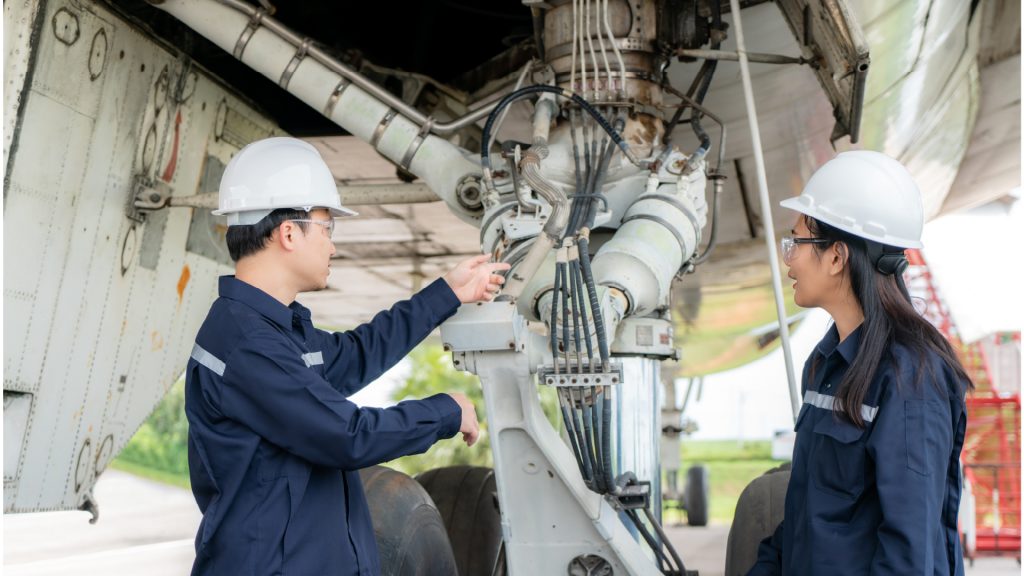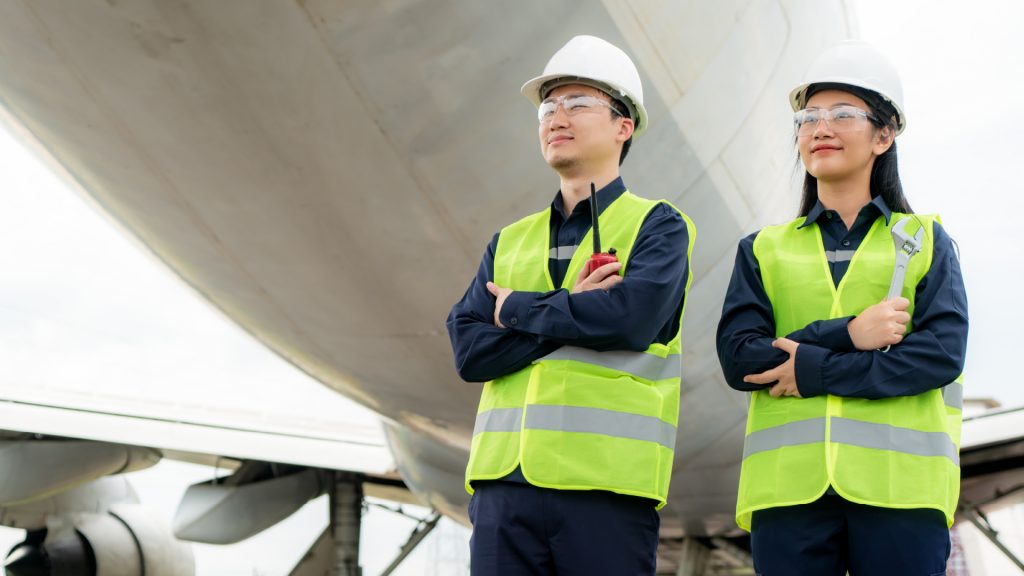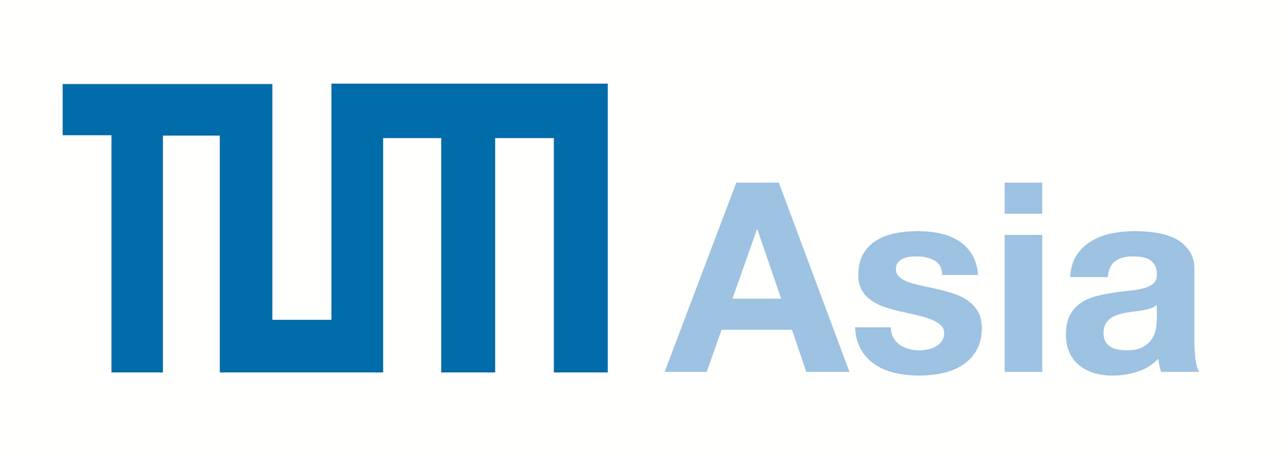Pursuing a Career of Choice in Aerospace Engineering

Thinking of pursuing a degree in aerospace engineering? Aerospace engineering involves the study of subjects like propulsion, structure, thermodynamics, and avionics. Whether you enjoy solving technical challenges or being creative and innovative, aerospace engineering opens up opportunities in a range of industries. Here are a handful of careers you can pursue after you graduate as an aerospace engineer.
- Aerospace Engineer
As an aerospace engineer, you will research, design, develop, maintain and test the performance of civil and military aircraft, missiles, satellites, space vehicles and weapons systems. Work is also carried out on the different components that make up the aircraft and systems. In some companies, you may otherwise be known as an aeronautical engineer. You will be concerned with improving flight safety, fuel efficiency, speed and weight, as well as reducing system costs and using developing technologies to meet customer needs. The role also increasingly addresses reducing the environmental impact of air travel.
Aerospace engineers develop and design aircraft, helicopters, spacecraft and satellites, plan and supervise their production. In addition, they work in sales and maintenance or as technical experts or work out regulations and guidelines for flight safety.
Aerospace engineers find employment, for example, in the following areas:
- in aerospace companies and the supply industry
- at airlines and airports
- at public authorities, e.g. Federal Aviation Authority
- in engineering offices
- in research and development institutions
Future aerospace engineers need not worry about their future. With the appropriate degree, they are well prepared for pretty much everything that may come in the industry in the next few decades. Aerospace engineering is considered one of the most important key industries in the German economy and a driving force for the development of future technologies.
The catch: studying aerospace engineering is one of the most demanding subjects and unfortunately also one of those with the highest failure rate. It ranges between 45 and 65 percent per graduating class. That’s why you have to learn, learn and learn again.
Those who have the degree in their pocket develop new aircraft, engines or satellites and their launch systems. Aerospace engineers are employed by companies in the aerospace industry.

Here they cover the following areas of responsibility:
- Design and development of aerospace systems
- Design and simulation
- Production planning
- Optimisation
- Evaluation and integration of new technologies
- Planning of air traffic systems and air traffic infrastructures
- Environmental impact and safety assessment
- Application-related basic research
The research and development results of aerospace engineering are also used and applied in numerous other industries. Therefore, there are also alternative fields of employment for aerospace engineers in other sectors.
The automotive and supplier industry, power engineering, energy supply companies, turbine manufacturers, aerospace companies, engineering offices, research institutions, management consultancies, government institutions – they all offer employment opportunities for aerospace engineers.
The work-life balance of aerospace engineers is rather unbalanced. After the studies, the pace of work continues unabated. As an aerospace engineer, you work on the pulse of technology, so to speak. This requires a high degree of innovative spirit and commitment. This is also well paid.

How does one become an aerospace engineer?
To be able to work as an aerospace engineer, there is no way around the degree programme of the same name. Here, prospective aerospace engineers deal with the development, construction, equipment and operation of aircraft such as planes or helicopters. The development of space transport equipment and missiles such as rockets or satellites are also part of this.
In this area, the training deals specifically with the space phenomena of vacuum, weightlessness or maximum temperature differences. Other technical, scientific and ecological aspects are also addressed.
The basic study programme is strongly based on mechanical engineering. In the first semesters, the programme focuses on the essential basics of engineering:
- Mathematics
- Physics
- Materials science
In the higher semesters, it gets down to the nitty-gritty. Then everything revolves around aircraft construction, aerospace technology, engine technology and flight operations technology. The theoretical knowledge is deepened through internships in industry.
However, for many future aerospace engineers, the bachelor’s degree is not usually the end of the line. Those who want to take on tasks with a high level of responsibility cannot avoid the subsequent Master’s degree with the goal of specialisation. Master’s students usually work on a research project, on which they also write their final thesis.
Employers who are looking for aerospace engineers
- In the aerospace industry
- At airlines
- At airports
- At maintenance companies
- In the supply industry
- In companies that develop control software
- In engineering offices
- In public administration
- At universities
- At research institutes
- In steel and light metal construction
Entry opportunities: The prospects for aerospace engineers
The entry opportunities for prospective aerospace engineers are very good. Because aviation in particular is and remains a driving force in the German economy. Even if the German aviation industry regrets in its latest forecasts on the state of the industry that the positive trend in aviation is making a beeline for Germany, this is complaining at a high level.
Aviation increased in all sectors: passenger transport, logistics, airports. For prospective aerospace engineers, this really only means: the already positive opportunities are even better abroad. So they can practically choose their jobs worldwide. By the way, the situation is similar in other sectors in which they can work.
Career: The development opportunities as an aerospace engineer
Anyone who wants to make a career in aerospace engineering should think about specialising early on. As a rule, it is already decided during studies whether the later professional focus should rather be on aeronautical engineering or space technology.
In the field of aeronautics, everything revolves around the topic of aircraft, while space technology deals with technology for outer space. Once the decision has been made in which direction to go, this specialisation should be deepened within the Master’s programme and initial contacts with the industry should be established.
A doctorate, which makes it possible to build up even more specialised knowledge, also lays the foundation for a later career in upper management. In all of this, however, it should not be forgotten that this also requires business and management-specific knowledge, which must also be built up.
- CAD Technician / Draughtsman
A CAD technician, also known as a draughtsman, uses computer-aided design (CAD) software to create technical drawings and plans – also known as draughting – for products and parts used in the engineering, construction, and manufacturing industries. You will work with architects and design engineers to understand the requirements of their initial designs and turn them into accurate and detailed technical drawings in 2D and 3D models. These drawings are used at all stages of a project, from estimating cost and feasibility to creating the blueprints for manufacturing and instructions for installation. You may also be interested in more specialised areas used in other industries such as computer-aided industrial design (CAID), computer-aided engineering (CAE), computer-aided styling (CAS) and computer-aided manufacturing design (CAM).
- Design Engineer
As a design engineer, you will be involved in the initial conceptualisation, design, development and management of projects in a range of sectors, such as construction and the built environment, materials, software, components, machinery and vehicles. To succeed, you will need strong technical and mathematical knowledge, as well as problem-solving, communication, leadership, and project management skills. Depending on your field of specialisation, design engineers may also be known as CAD engineers, consulting engineers and product design engineers.
- Higher Education Lecturer
As a Higher Education lecturer, you will need strong expertise in your subject area in order to teach students. Teaching methods include conducting lectures, seminars, tutorials, practical demonstrations, fieldwork and directing your students to complete e-learning tasks. Multimedia technologies are becoming increasingly used. You are also required to pursue your own research to contribute to the wider research activities of your department or institution. The aim is to have this published in books or scholarly articles, so as to help raise your institution’s profile.
- Maintenance Engineer
As a maintenance engineer, you will be responsible for the continuous and uninterrupted running of equipment and machinery in industrial settings. Using computerised systems, you will oversee routine maintenance and organise repairs. You will also be involved with control and monitoring devices and occasionally in the manufacture of items that will help in maintenance. Your role is vital to the efficiency, development and progress of the manufacturing and processing industries. Working with other professionals, you will improve production facilities, reduce the incidence of costly breakdowns and develop strategies to improve overall reliability and safety of plant, personnel and production processes.
- Manufacturing Systems Engineer
As a manufacturing systems engineer, you will work as part of a team to design, install, monitor and develop manufacturing equipment and assembly lines in factories. You may also be involved in the design and construction of new manufacturing plants. Manufacturing systems engineers work to integrate the entire manufacturing process. This ranges from production and supply right through to sales. The aim is to allow the maximum volume of high-quality products to be produced at the lowest cost and in the shortest time. You will use the latest computer technology and employ a systematic approach to finance, costing, methods, materials, and technology across traditional departmental boundaries.
- Materials Engineer
As a materials engineer, you will work with various materials to improve their performance or create new materials to help advance technologies or products. You will need an in-depth understanding of the properties and behaviours of different substances, from raw materials to finished products. You may work with a range of materials including ceramics, plastics, polymers or industrial minerals. There is always a need for materials to have better durability or strength and to be more cost-effective to help with various processes and products. Work can therefore be found in a range of industries.
- Mechanical Engineer
As a mechanical engineer, you will provide effective solutions to the development of processes and products, ranging from small component designs to extremely large plants, machinery or vehicles. You will work on all stages of a product, from research and development to design and manufacture, through to installation and final commissioning. Most industries rely on various mechanical systems, and mechanical engineering is thought to be one of the most diverse of all engineering disciplines. Due to this, there are employment opportunities across several sectors.

Interested in Aerospace Engineering? If you are looking at furthering your knowledge about the industry in the hope of landing a career of choice in this burgeoning sector, find out more about our Master of Science in Aerospace Engineering.
(Reference: https://www.prospects.ac.uk/careers-advice/what-can-i-do-with-my-degree/aerospace-engineering)




















